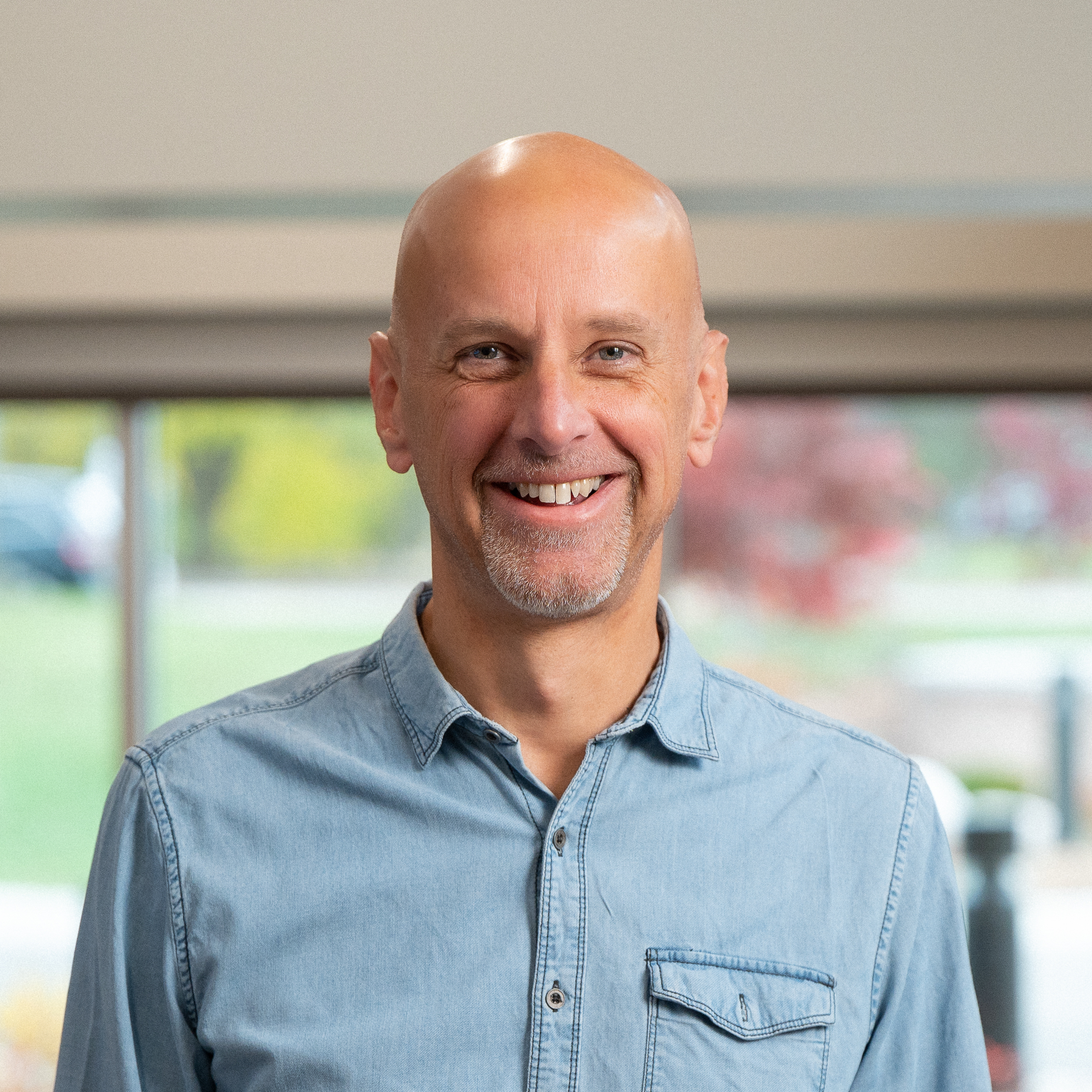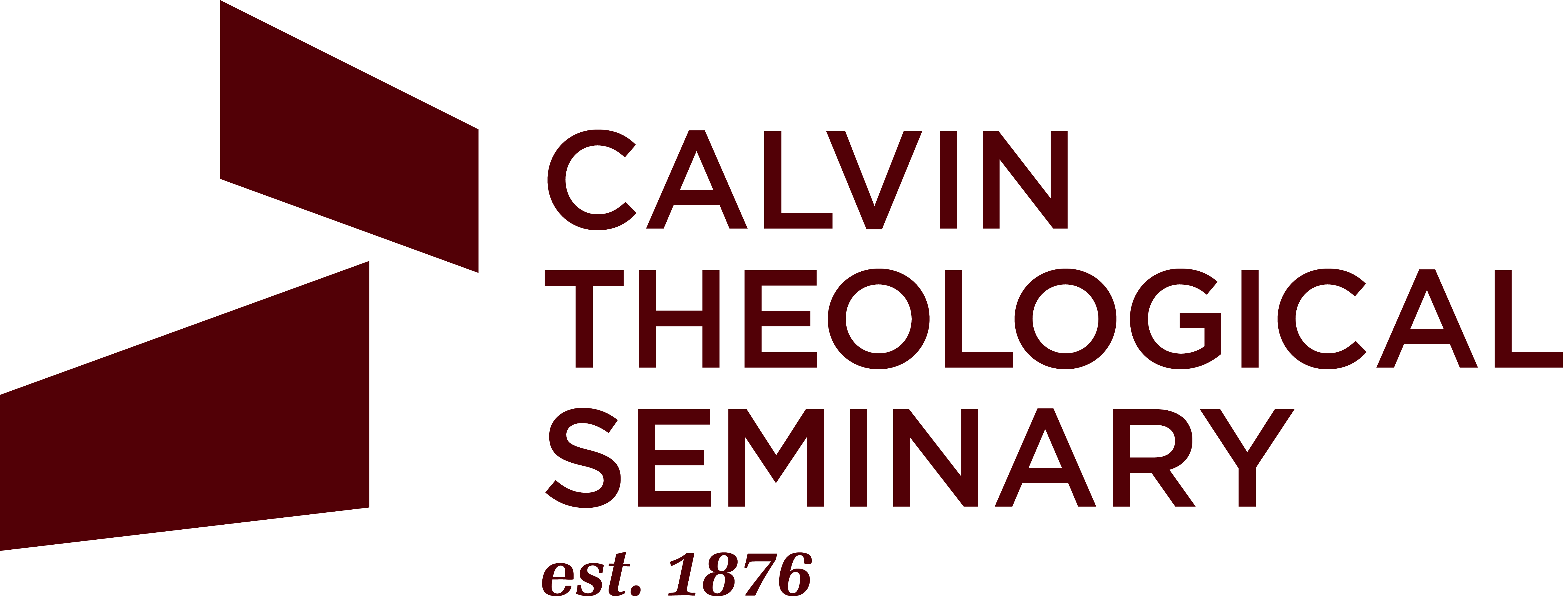Seminaries Aren’t Just for Pastors Anymore: Equipping the Priesthood of All Believers

Published by David Rylaarsdam
Professor of the History of Christianity and Worship
Water and oil don’t mix. At least, chemically speaking. But for early Christians, water and oil were the perfect mix for picturing who Christians are called to be. In the early church, when someone like Jane B. Leever was baptized, water was poured on her, and then she was anointed with oil and hands were laid on her head. Water and oil. The early church wanted to make clear that baptism was an ordination. In her baptism, Jane was being anointed as a priest. As the Bible teaches, God’s people are a kingdom of priests, called to serve God in the world (Ex. 19:6; 1 Pet. 2:9; Rev. 1:5-6).
One reason the early church grew so dramatically is that all believers saw themselves as priests. By compassionately serving and witnessing to their neighbors, these priests – average Janes and Joes – converted an empire. The church equipped them to do this ministry. Congregations provided discipleship and ministry training for the entire priesthood of all believers – everyone from the new believer to the person preparing to be the next lead pastor. There were no seminaries. For 16 centuries, the local church trained everyone for ministry, including pastors.
Seminaries, as we know them, have existed only for a few centuries. When seminaries were established, they adopted a university model of education and focused on training ministers, not the priesthood of all believers. When I was a Calvin Seminary student 30 years ago, seminaries were largely viewed as places that you would go if you wanted to become an ordained Minister of the Word. Seminaries were for those clergy type people.
Not anymore. Seminaries today are coming alongside churches to help all sorts of Christians take the next step in their discipleship or to develop a gift to serve their community. Calvin Theological Seminary (CTS) is one of those seminaries. During the last decade, CTS has developed various forms of training for the broader priesthood of all believers, including Latino laity, Christian school teachers, prisoners, and many others.
A decade ago, CTS began offering Certificates in Spanish, one for Latino pastors and one in Family Care, geared for laity. 162 people have graduated from these programs. Nearly half of them are lay leaders. These graduates have been a leavening influence on 80 congregations, and 6 new churches have been planted.
In recent years, CTS is also equipping primary and secondary school teachers. In partnership with Christian Schools International, CTS is offering a Certificate in Bible Instruction. Online courses are made to fit teachers’ schedules and can be used toward a master’s degree in education at Calvin University.
Of course, the priesthood of all believers is not only found in Christian organizations such as Latino churches or Christian schools. Part of the priesthood is in prison. In 2015, the Calvin Prison Initiative was established by CTS in partnership with Calvin University and the Michigan Department of Corrections. This initiative offers accredited degrees in Faith and Community Leadership. 145 inmates from throughout the state of Michigan have been admitted into the program and trained at Handlon Prison. With great zeal, these students pass on and practice what they learn. They offer classes to other prisoners, lead worship services, mentor prisoners one-on-one, and serve inmates with mental health conditions or developmental challenges. Handlon Prison – once known as Gladiator School due to its brutal culture – has been transformed. Violence has plummeted, leaving corrections officers shaking their heads in amazement. Understandably. They have front row seats to watch the Spirit of God, disguised in prison jumpsuits, working through the priesthood of all believers to renew the world behind razor wire.
Last year, CTS began experimenting with another form of equipping the body of Christ. When Covid-19 hit, CTS developed a series of miniature online courses on practical topics to help believers live faithfully in a Covid-shaped world. People could audit these mini courses for a few weeks or take them for credit. Over 400 people from around the world participated. Why? Because seminaries aren’t just for ministers anymore.
What have we at CTS learned through our various opportunities to train the priesthood of all believers? It’s time to double down. Now, more than ever, CTS is hearing from churches and parachurch organizations that they need more training for leaders of all ages, experience levels, and ministry roles. Church and seminary together can provide a continuum of discipleship and leadership training, so that every disciple (including pastors) can take the next step in developing their gifts to serve.
Toward that goal, CTS is developing the Next Steps Initiative. This initiative will expand what we are already doing and equip more disciples to take their next step in missional living and service to others. We want to make resources accessible to wherever people are in the world. We want to help form disciples of Jesus in diverse vocations to further the kingdom of God.
For example, CTS plans to expand our miniature courses offered during Covid. We want to offer learning experiences in a variety of formats, including online modules, weekend retreats, and webinars. Learning experiences would include practical evergreen issues such as spiritual formation, one-on-one discipleship, transforming conflict, missional living in all vocations, forming communities for people with all abilities, adaptive leadership, or leading a part of worship well. Such topics are already being taught in current CTS degree programs, but they need to be adapted and delivered in new ways so that a broader spectrum of the kingdom of priests can benefit.
As part of our Next Steps Initiative, CTS also hopes to expand our Latino program beyond West Michigan. Within 25 years, 25% of the U.S. population will likely be Latino. Global migrations are opportune moments for the church. CTS wants to seize the opportunity to learn from and teach pastoral and lay leaders serving a burgeoning Latino population, so that together as the body of Christ we can be agents of renewal in society.
CTS will also develop new alliances in order to serve the countless anointed priests who want to take next steps. Sonlight Church in Port St. Lucie, FL is a good example. During the last 15 years, Sonlight has been training disciples to make disciples. Hundreds of lay people have been trained to engage in one-on-one discipleship (222disciple.com/about). Sonlight is giving further leadership training to many of these disciples: 22 have been licensed to preach by their CRC classis, 8 have become Commissioned Pastors, and 2 have become Ministers of the Word. Sonlight wants CTS to come alongside them in order to further strengthen this continuum of discipleship training. CTS plans to develop modules as well as a competency-based Certificate and an MA degree so that more people are equipped as lay disciplers, ministry staff, or church planters. Competency-based theological education is a new form of accredited seminary education that trains people in their ministry context with a team of pastor and faculty mentors. The goal of this form of education is not for every student to complete a predetermined list of courses and credits with adequate grades. Instead, students learn at their own pace through ministry experiences and study and mentoring, so that they can gradually demonstrate the competencies needed to do their ministry well.
The modules and programs developed for Sonlight can be adapted to other congregations in North America and internationally. Modules and mini learning experiences can also be adapted to the particular needs of leadership networks or organizations. For example, CTS is making plans with Resonate to create learning modules for cohorts of young adults who are serving local mission organizations. CTS is also collaborating with Grand Valley State University to develop training modules and mentoring for undergrad student leaders. Many of these student leaders will never earn a full degree at a seminary, but they will grow in their discipleship and ability to do campus ministry and serve churches.
Through our Next Steps Initiative, CTS is becoming not merely a pipeline for emerging clergy but also a soaker hose, spread throughout the church, collaborating with teaching congregations and organizations to irrigate the growth of a wide range of Christians. Of course, CTS will continue to serve those who will become ordained ministers. In fact, we will probably serve them better, because strengthening the priesthood of all believers makes the church stronger and makes a pastor’s work more realistic. Rather than burning out from doing too much ministry on behalf of laity, pastors can focus on equipping the priesthood of all believers for service. And they will not be alone. Seminary resources and teachers will be alongside them. It’s actually a biblical vision: “Christ himself gave…pastors and teachers to equip his people for works of ministry, so that the body of Christ may be built up” (Eph. 4:11-13). Pastors and teachers equipping together. CTS has always been a community of teachers for the church, and we will continue to be. But now we are discerning alliances so that we can be an equipping resource for a broader spectrum of disciples. Seminaries aren’t just for ministers anymore.
Share
Visit Calvin Theological Seminary’s Campus
We can’t wait to host you on campus! Schedule your visit today, or, if you need more time to find a date that works for you, please request information so we can continue the conversation about supporting your calling!
